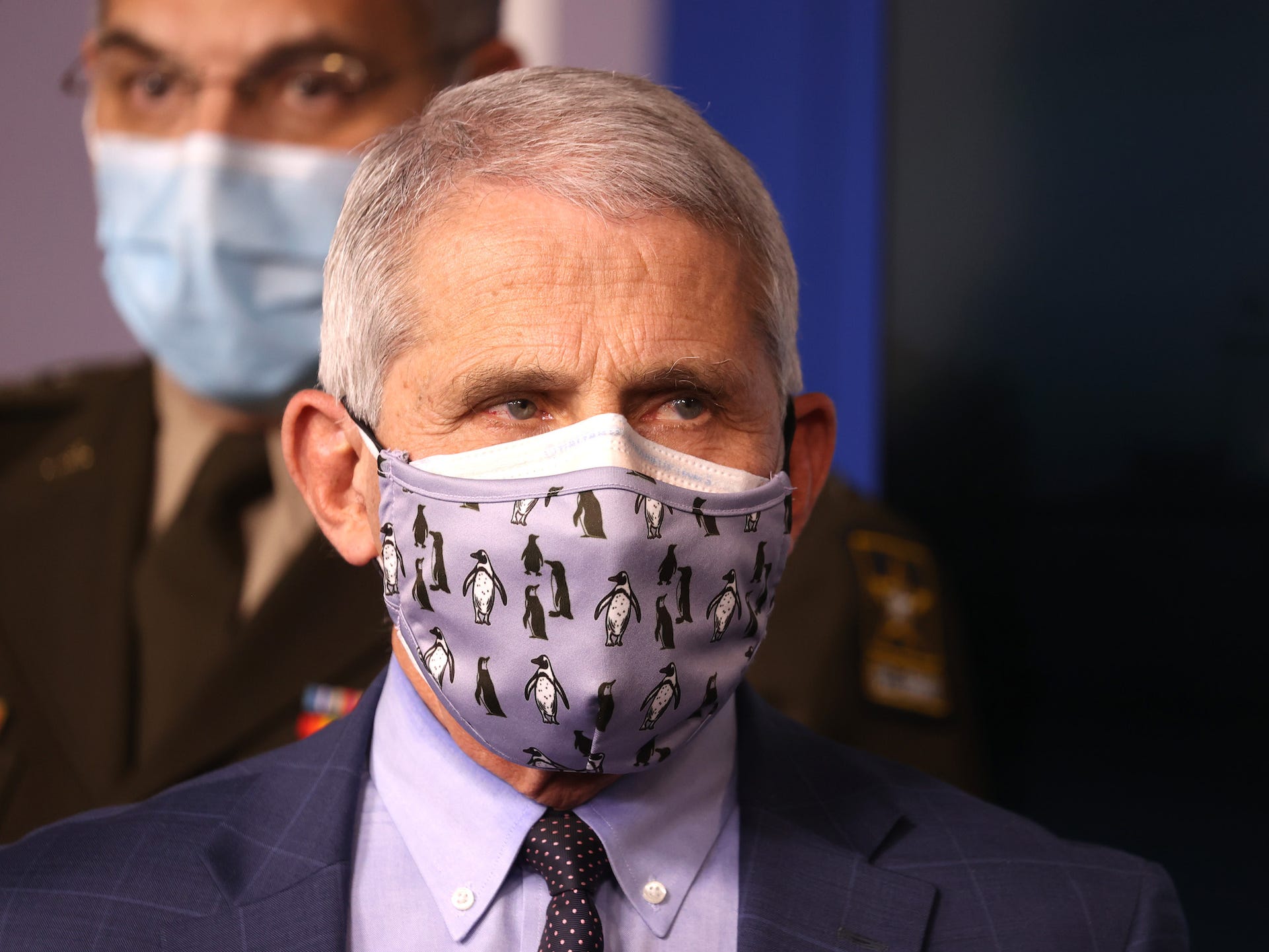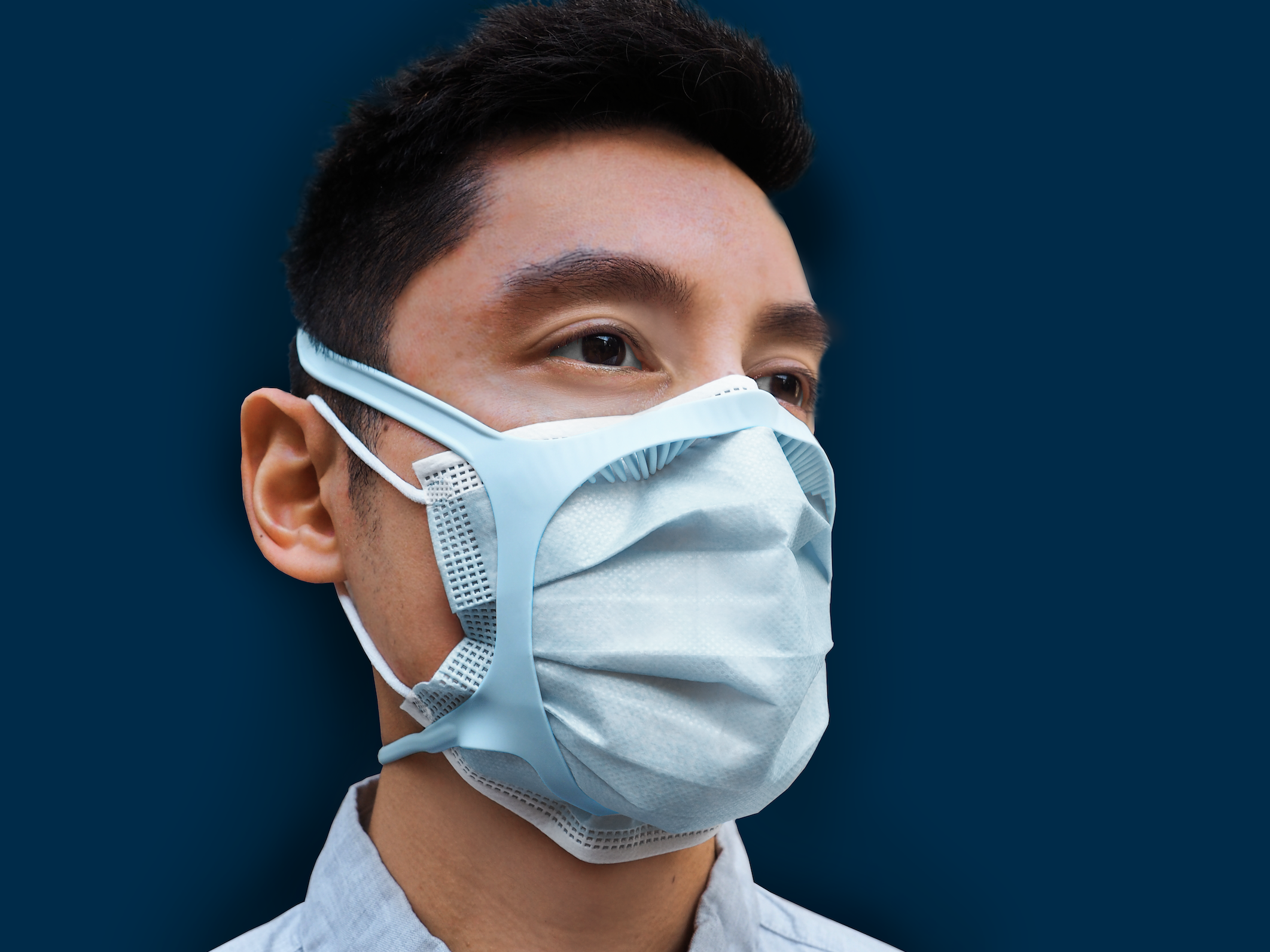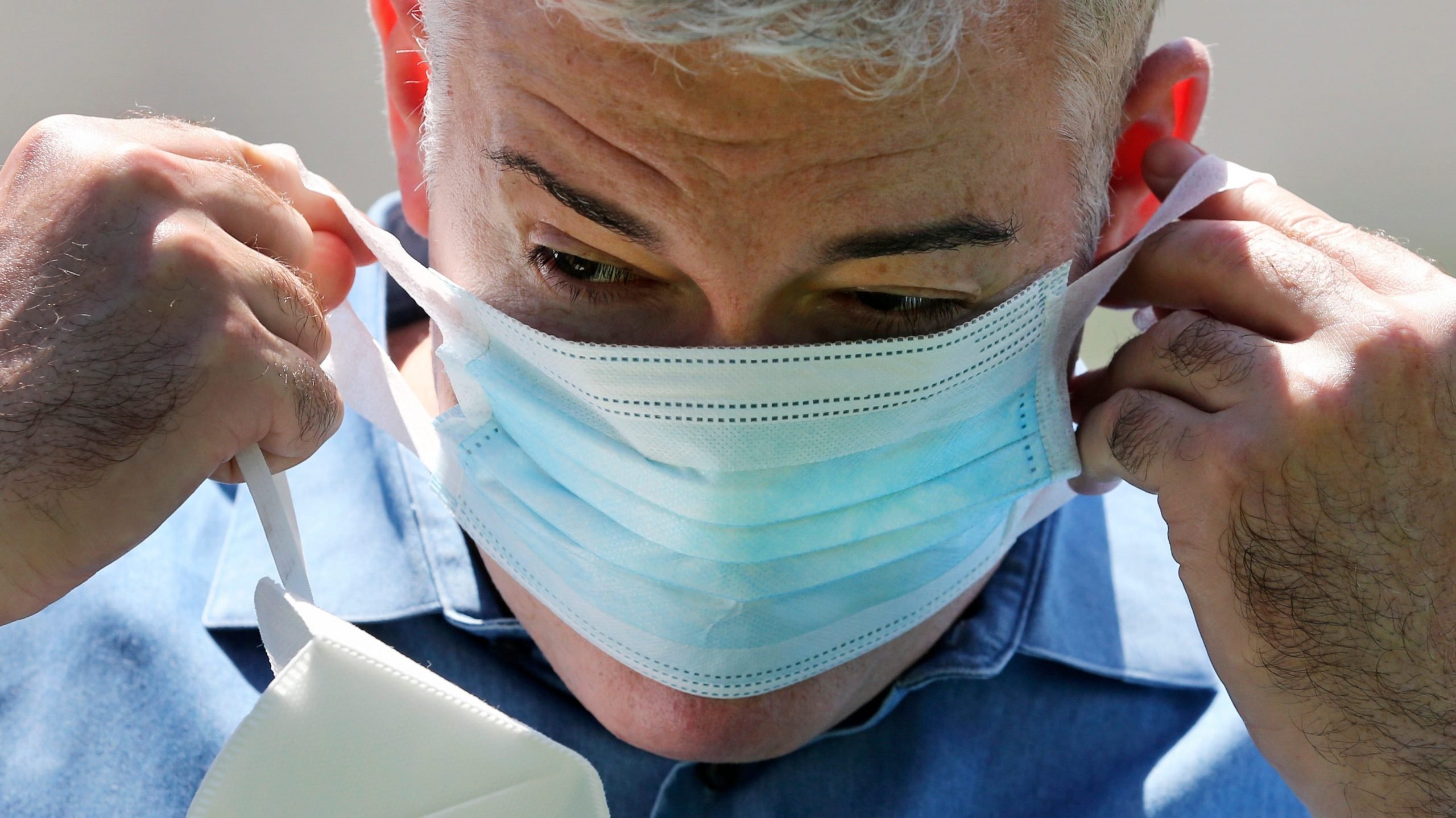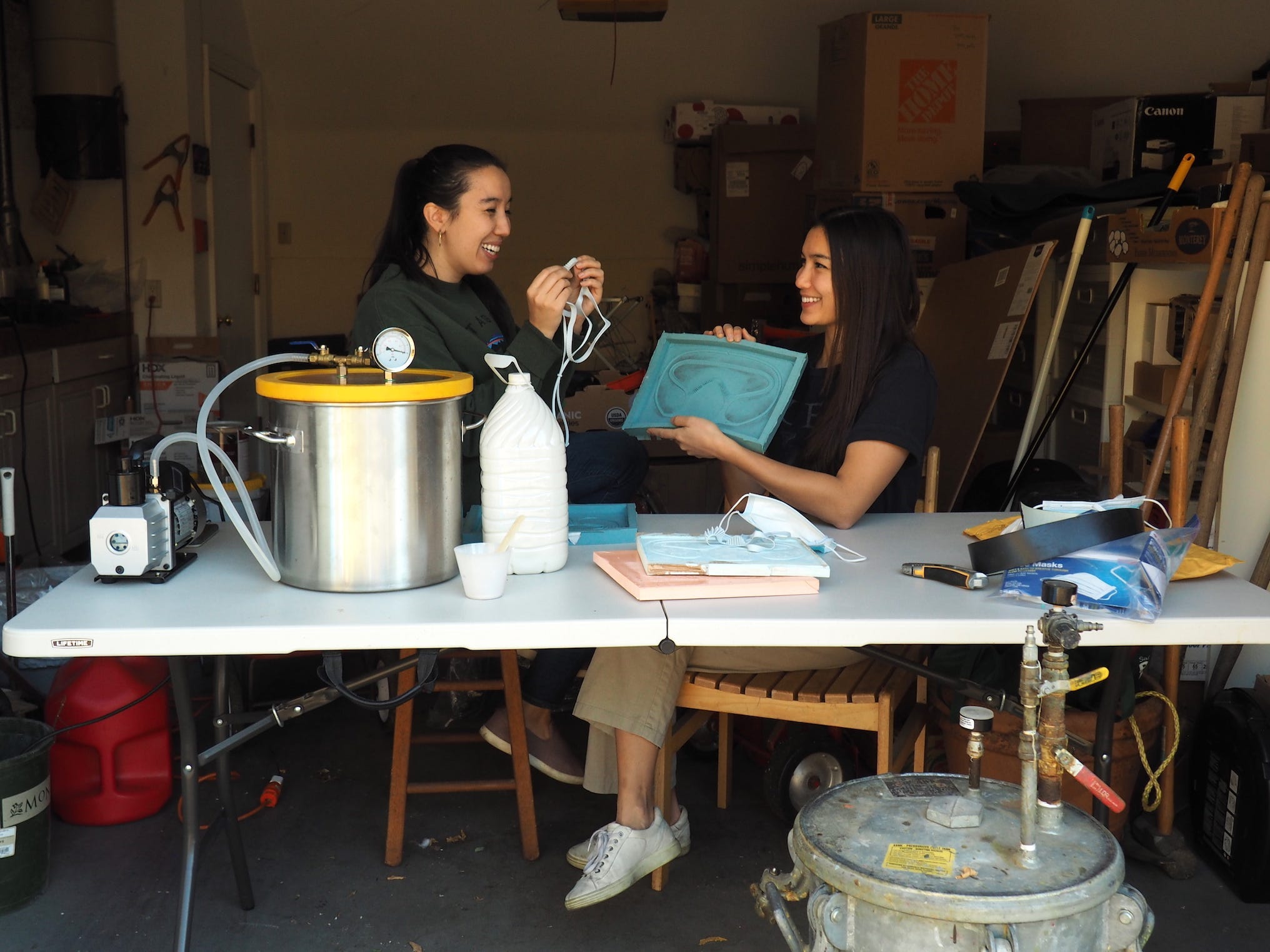
Tasos Katopodis/Getty Images
- As new variants of the coronavirus spread, masking and distancing are more important than ever.
- Double masking may help, but mask fitters are likely even better protection.
- Here are experts’ best pointers for how to know if your mask fits, protects, and seals well.
- Visit Insider’s homepage for more stories.
When Dr. Anthony Fauci heads to work, at the White House or the National Institutes of Health, the nation’s top infectious disease expert is often sporting not one, but two face masks.
He says this double masking strategy helps his masks fit more snugly and comfortably onto his face. But double masking is not – yet – a practice backed up by any studies or scientific recommendations.
Scientists at the Centers for Disease Control and Prevention are testing whether two masks are better than one, but don’t currently have enough evidence to recommend it.
In the meantime, there is one lab-tested solution that can make almost any mask more effective: the mask brace.
Also called a mask fitter, it goes on over a single face mask, to ensure a snug, secure fit, and close any gaps where contaminated air could ordinarily rush in, or escape. In scientific studies that have been performed at research universities around the US, it’s performed near as well as N95s, which are considered gold standard medical face masks.
Surgical and cloth masks allow particles to leak out
Mask fitters are designed to hug a mask to the contours of your face.
"These reusable devices help improve the fit of a cloth or a medical mask by creating a tight fit," Dr. John Brooks, Chief Medical Officer of the CDC's COVID-19 Response, told reporters on a recent Infectious Diseases Society of America virtual briefing.

Fix the Mask
Unlike double masking, he said, "fitters have been scientifically demonstrated to improve filtration performance by as much as 90% or more, which again is getting into that range of filtration efficiency afforded by N95 respirators."
Fitters have been tested by independent scientists at the University of Wisconsin, the University of North Carolina, and the University of Iowa, and each institution has found they improve how well masks work at keeping your germs away from other people, and keeping other people's germs away from you.
"Most masks, like surgical-style masks, or just a simple knit cloth mask, they're leaking," mechanical engineer David Rothamer, who co-authored UW's recent study on mask fitters, told Insider. "Like 70 or 80% of the air is bypassing the mask."
There's a risk double-masking could create more leaking if it's not done properly

Charles Krupa/AP Photo
Rothamer said it's possible that double masking could even, in some cases, do more harm than good.
"It's not as simple as a 'two is better than one' equation," he said.
By creating more pressure between a person's face and their mask, it's possible double masking could increase leaks out the sides and the top of the mask.
But it's hard to know just yet, because there haven't been good, clear, protocols established about how to know if your mask is working well.
"I wish the government would have kind of stepped in and, at least from the mask side, given better guidance," Rothamer said. "The somewhat frustrating thing is I think there was an opportunity to say, 'okay, we can use scientists to design this, use experts, design something that's cheap to produce, do it at high quantities, and get these things out there.'"
That didn't happen. Instead, Sabrina Paseman, a former Apple engineer, created a kickstarter last spring to get the job done. Her brace is what researchers (including Rothamer) have used in their studies. It is also unofficially endorsed by many leading coronavirus scientists, including virus expert Don Milton from the University of Maryland, and air quality pro Linsey Marr from Virginia Tech.
Mask fitters make simple, medical masks nearly as effective as N95s

Fix the Mask
Today, Paseman's new company, Fix the Mask, estimates that 30,000 of their mask fitters are in use on faces around the world (some of those are DIY versions from a rubber template the company shares on its website.)
"There are three things that matter with your mask: how well it filters, how breathable it is, and how well it fits," Katherine Paseman, the Chief Operating Officer of Fix the Mask, told Insider.
To make sure your mask is breathable, put the mask on, either with a fitter, or with your hands cupped around your nose and mouth to seal it, and make sure you can still breathe comfortably. It may inflate a little as you're doing this test, but it should feel like air is being filtered through the mask, not escaping out the sides or the top.
Then, check to ensure it fits snugly, and that there aren't large gaps above the mask on your cheeks, or the sides.
One way to secure the fit is to tighten the ends of your ear loops using rubber bands or rubber fasteners. But mask fitters can make your mask even more effective than that, according to research.
"It's one, compression-molded piece made out of silicone," Paseman said. This avoids leakage so that "I know I'm actually getting the real filtration performance out of the mask," she added.
Fix the Mask is hoping to receive NIOSH certification for its product in the coming months, which could make it recommended for use (along with compatible, approved masks) for millions of workers in high-risk environments across the country.
How to navigate the Wild West of face masks
—Linsey Marr (@linseymarr) January 26, 2021
Whether you're double masking, mask bracing, or none of the above, it's important to know that most masks on the market aren't rated to any uniform, medical-grade standard.
"You have, basically, an unregulated bunch of products," Rothamer added. "Nobody really knows how they perform, unless you're someone like me who has a couple hundred thousand dollars worth of equipment to test it."
If you want to assure that your mask is of good filtration quality, try to find one that's ASTM certified to a level 1, 2, or 3 (1 is rated good enough for general use in everyday clinical settings, while 3 is for filtering heavy levels of aerosols).
Whichever mask you choose, and whether you decide to double mask or not, be sure to pick a solution that you will actually wear, and feel comfortable in, one that allows both your nose and your mouth to stay consistently inside.
"If we could just get people to wear masks properly, that would be a huge first step," Rothamer said. "You've got to wear the mask, and it has to fit well."
All of the experts can agree on that.
"Any mask is better than no mask, " Dr. Brooks said. "Regardless of what we use, it's critical that as many of us as possible mask up."
